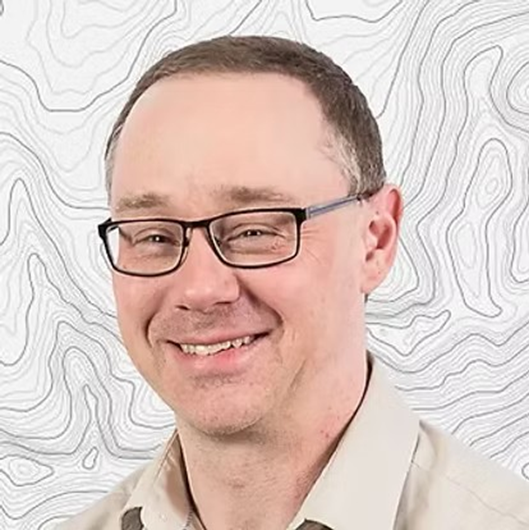报告人:Derek Lichti(加拿大卡尔加里大学 教授)
时间:2025年11月4日(周二) 10:00-11:30
地点:测绘馆206报告厅
报告简介:
Three-dimensional (3D) reality capture is an umbrella term for imaging techniques, such as laser scanning, that are used to create accurate models of real scenes and objects. Reality capture technologies produce dense point clouds from which a 3D model is constructed according to a scan-to-BIM workflow. Quality assurance, in particular first order network design (FOD), is a critical aspect of this process to maximize model quality and ensure that project specifications are met. Viewpoint planning—a FOD process—is concerned with determining the number and location of instrument stations (and possibly the path between them) required for a reality capture project. Radiated point precision is often used as an accuracy criterion to guide the viewpoint planning for terrestrial laser scanning surveys. However, radiated point precision does not account for all factors affecting positional uncertainty. In this presentation, the use of modelled object precision for viewpoint planning is proposed. The methodology rigorously combines all contributing error sources to provide a better measure to guide FOD.
报告人简介:
Derek Lichti received his Bachelor’s degree in Survey Engineering from Toronto Metropolitan University, in 1993 and MSc and PhD degrees in Geomatics Engineering from the University of Calgary in 1996 and 1999, respectively. He worked as an academic at Curtin University in Perth, Australia, from 1999 to 2007. He is currently Professor in the Department of Geomatics Engineering at the University of Calgary, which he joined in 2008, and served as Head of the Department from 2013 to 2018. He is also Adjunct Professor in the Department of Geodesy and Geomatics Engineering at the University of New Brunswick and in the School of Earth and Planetary Sciences at Curtin University in Perth, Australia.
He has served the International Society for Photogrammetry and Remote Sensing (ISPRS) in several capacities over the past two decades. This includes two terms (2004-2008; 2008-2012) as Chair of the ISPRS Working Group on Terrestrial Laser Scanning and organization of the ISPRS Laser Scanning 2011 Workshop held in Calgary. Between 2013 and 2020, he served as Editor-in-Chief of the ISPRS Journal of Photogrammetry and Remote Sensing. He is currently ISPRS Congress Director, responsible for organization of the 2026 ISPRS Congress in Toronto, and a member of the ISPRS Council. In 2022 he received the Schwidefsky Medal and in 2025 the Carl Pulfrich Award.